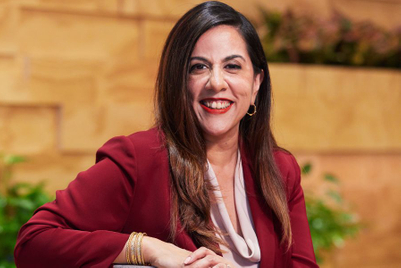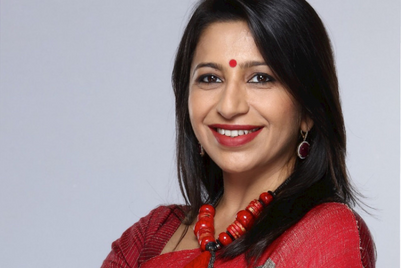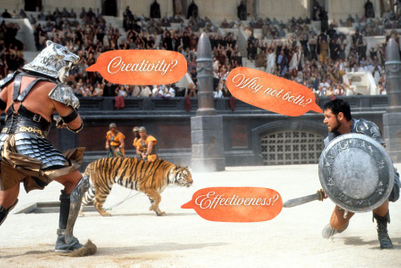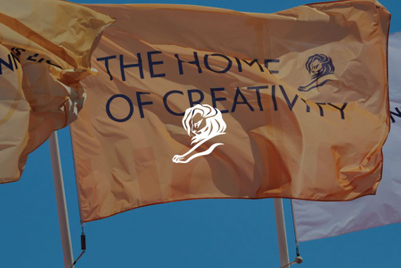On the sidelines of the
India Chapter of the IAA and UNICEF releasing a study on the representation of gender stereotypes in Indian advertising, a panel comprising Megha Tata, MD – South Asia, Discovery Communications; Piyush Pandey, worldwide CCO, and executive chairman – India, Ogilvy; Rohini Miglani, vice president, brand-building integrated communications, Procter and Gamble; and Sapna Chadha, senior marketing director, Google India, took up the same issue.
Tata, who is also the president of the India Chapter of the IAA, explained why this study was conducted. “When UNICEF approached us, we thought it’s a fantastic opportunity. We have always felt the need to address diversity and gender representation. We can change the narrative and we are an industry that can make the difference. Content creates a narrative that represents society. I think as an industry body we feel strongly about how we can make a difference along with advertisers, agencies, and media houses,” she said.
She added that the advertising should be looking to go beyond breaking gender stereotyping by addressing biases like body size, colour, and sexual orientation.
Pandey spoke about the power of social advertising for doing social good.
“Good advertising goes under the skin and sees problems which people don’t talk about openly in research studies. We need to get to the bottom of the problem. If you look at the kind of work that’s being done by Tata Tea (Jaago Re), Share the Load by P&G or work for Red Label and Titan, we are seeing changes. Red Label has shown a woman pushing a family to serve food to a Covid patient next door. It’s the overall personality of a woman that you have to respect. We have to find the most non-obvious ways of saying a woman matters. When I saw those numbers on women represented in ads in the banking and finance category, they’re cruel and sad. The country has a lot of women in the banking and finance sector, so I don’t know where we have missed the point. I also believe that if 10 people are making this kind of work (that takes on gender stereotypes) and becoming popular in the market place it will rub off and will multiply to 20 and 40 people,” he said.
He added, “The other disturbing part is about colour. There’s a history of this country that has a bias (towards light-skin tones). Change is coming. The colour change scenario for cosmetic brands – someone will have to take the step. We have done this, and have attempted it, but it has not been given the full thrust because the client’s belief wasn’t 100%. We have to show and look at important things like nudity and obesity too and have to depict the woman in the right way. Studies like these will open minds. We are on a good wicket – but we have to bat well together. Several agencies are doing good work today, and I think the next time we do this research we’ll see better numbers. One of the issues the PM is talking about it is about educating girls. We have the environment and will, we need to demonstrate it.”
Chadha shared and explained Google’s inclusive principles the organisation uses as a guide for marketing strategies.
Your business is your brand: Communication is the most important thing, but the key thing is to incorporate it into your business. We need to do this across the whole value chain and remember that our business is our brand. So, our work across the spectrum has to be inclusive. We need to foster psychological safety.
Authentic, relative storytelling: Don’t look insincere and tell real stories of real people. It’s probably less important to fictionalise.
Challenge the stereotypes: Missed opportunities exist when we don’t challenge preconceived bias.
Understanding your brand’s role: This is beyond a PR opportunity. The end goal of inclusive marketing is not PR. We need to connect to our customers and be credible. It’s not about us or the brand, it’s about the end outcomes.
She added how Google’s Internet Saathi program helped bring more women to the internet. “India has had a huge gender divide on the internet. That’s what we have worked on in the last five years. We want clients and partners to do this. We now have 4/10 internet users being female. It used to be 1/10 earlier. Now, that we have done this and we have gender equality, we need to highlight the great work that our advertisers are doing. When you do wholesome marketing, it drives results,” she said.
Explaining the initiative and the steps taken so far, she said, “We found that if there were female directors and writers behind the camera, we would see a change in their roles in front of the camera too. Our journey started with realising ads impact how people perceive their world. Ads can impact people’s attitudes. P&G is one of the largest advertisers in the world and we aim for gender equality. We started with this because a lot of our brands tend to be bought by females. Our portrayal of these women who we serve – we want that to be authentic and not stereotypical. When women are writing and directing it, it becomes more real for the audience. What we find is that we need to not only find women directors but also need to mentor them and work with newer talent and create equal opportunities for them to get projects.”
Miglani added that brands usually want to work with people that have a showreel in place, rather than allowing them to create one. “We want to support women directors early in their careers and give them the opportunity,” she said.
Tata then spoke about how Discovery Communications as a company acknowledges that biases exist and instead of ignoring that fact, they have a mandatory ‘unconscious biased training’ programme to change it.
“Actions speak louder than words and we’re seeing more of that action taken by organisations like P&G. For Discovery too, it’s one of the integral parts of our organisation. It’s shown in the content we create and also for our employees to see. This is one of the few companies that take diversity very seriously. We have mandatory, unconscious biased training. We all do know that biases exist in our lives. It’s time to acknowledge they exist and time to make them change. There are multiple initiatives which are not only gender-skewed.”
Pandey confessed that Ogilvy is currently short of the 50% representation of women in leadership positions it aspires to have. But, he has a solution to address that problem soon. “We need to train women right from the time of hiring and then you’ll end up getting more in leadership positions. Our worldwide CFO is a lady. The belief is there. Every slot is not completed, but we want to get there,” he said.
The panel ended with Miglani being asked about P&G’s #ShareTheLoad campaign that’s released each year since 2014 for Ariel.
“It’s from the belief we have that being a force for good can’t change from year to year. The consumer is expecting a lot from us and they want authenticity from brands. One of the ways to convey that is to be consistent with your messaging. You can’t switch to a trendy cause topic year-to-year. That’s why we have stuck to #ShareTheLoad and revisited it every year. The other aspect about this is that we are finding that a force for good is a force for growth. Purpose-led advertising is the right business choice, too. As a result of this consistency, we have found that now 41% of the men believe that washing clothes is a woman’s job. This was at 80% when we started the campaign in 2014. This keeps us going and we have extended this from detergent advertising to other advertising.”




.jpg&h=334&w=500&q=100&v=20250320&c=1)










.png&h=268&w=401&q=100&v=20250320&c=1)

.png&h=268&w=401&q=100&v=20250320&c=1)
.jpg&h=268&w=401&q=100&v=20250320&c=1)


.jpg&h=268&w=401&q=100&v=20250320&c=1)
